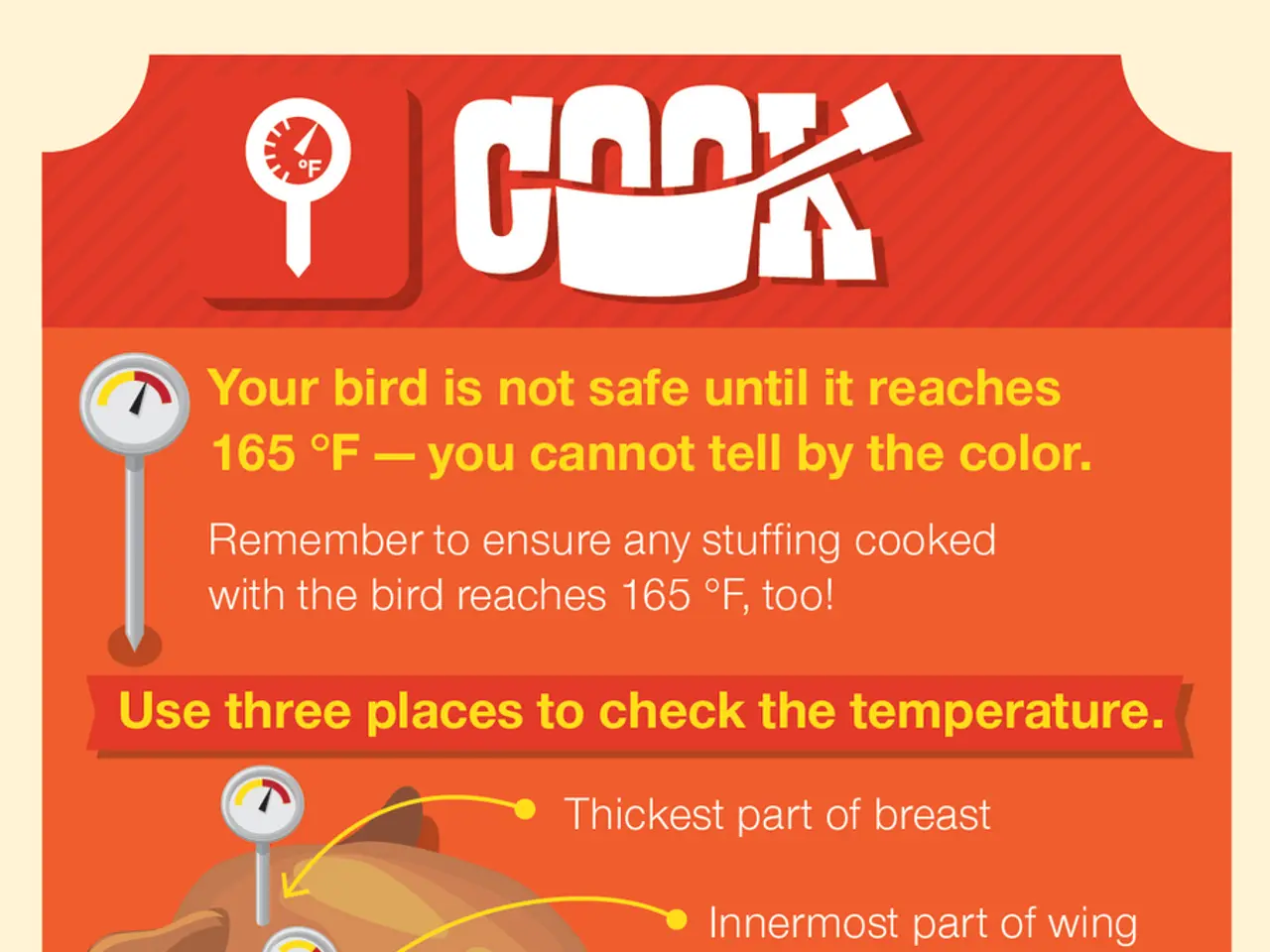Increased Salmonella cases flagged by KDCA amidst hotter-than-usual temperatures
South Korea is currently grappling with a significant increase in Salmonella cases, particularly those linked to school bread products. As of mid-June 2025, the number of symptomatic individuals has risen to 208, according to health authorities [1][2][3].
The outbreak has been traced back to two specific bread products served in school meals: the High-Calcium Strawberry Cream Roll Cake and the High-Calcium Korean Wheat Choco Banana Bread, both manufactured by the food processing company Mother Goose and distributed by Foodmerce, a subsidiary of Pulmuone [1][2][3].
The Salmonella found in both the bread products and the patients shares the same genotype, confirming the source of infection [1][3]. The initial outbreak originated from two group meal facilities in Cheongju and Jincheon, North Chungcheong Province, and later spread to Sejong and Buan, North Jeolla Province [1][2][3].
In response to the outbreak, the Ministry of Food and Drug Safety ordered a recall and suspension of sales of the implicated bread products on June 5, 2025 [1][2][3]. Pulmuone has since expanded the recall and disposal to all its bread products related to the outbreak to eliminate any risk of further infections [4].
Health authorities are actively monitoring other facilities that received the suspect products to detect additional cases [3]. Ongoing investigations aim to determine whether contamination happened during production or distribution to prevent future outbreaks [4].
The key to preventing further Salmonella outbreaks in this context involves strict food safety controls during production and distribution, timely recalls, and monitoring by health authorities. Enhanced hygiene and temperature control in bakery production and storage, along with rapid response to contamination signs, are critical to safeguard school meal programs from similar foodborne illnesses in the future.
While South Korea grapples with this outbreak, it's also experiencing a spike in heat-related illnesses, with cases rising by 83 percent [4]. This summer has been particularly hot, setting record-setting June temperatures and making it the hottest summer ever in the country [4].
In addition, cases of infectious diseases have risen by 54 percent [4]. Among these, whooping cough and scarlet fever are among the top infectious diseases [4].
References: [1] Korea JoongAng Daily. (2025, June 10). Salmonella outbreak in school bread products widens to 208 cases. Retrieved from https://koreajoongangdaily.joins.com/news/article/23863882 [2] Yonhap News Agency. (2025, June 10). Salmonella outbreak in school bread products widens to 208 cases. Retrieved from https://english.yonhapnews.co.kr/news/2025/06/10/0200000/050000/23863882.html [3] Korea Herald. (2025, June 10). Salmonella outbreak in school bread products widens to 208 cases. Retrieved from https://www.koreaherald.com/view.php?ud=20250610000186 [4] Chosun Ilbo. (2025, June 10). Salmonella outbreak in school bread products widens to 208 cases. Retrieved from https://english.chosun.com/site/data/html_dir/2025/06/10/20250610000134.html
- The rise in heat-related illnesses in South Korea, with cases increasing by 83%, has highlighted the need for improved environmental health practices and lifestyle adjustments during hot weather.
- As the Salmonella outbreak in school bread products widens, the importance of practicing strict health-and-wellness measures in food production and distribution, such as hygiene and temperature control, becomes increasingly evident.
- The spike in infectious diseases in South Korea, including whooping cough and scarlet fever, illustrates the need for enhanced environmental and food safety, as well as a strong focus on science and research to prevent further outbreaks.




